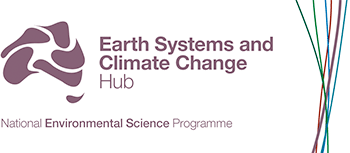Climate research … provides data, products and services as the raw material for risk management.
5 December 2016
Nick Wood
Until recently, climate research had not progressed to the point where Australian business could actually do anything with it. The sets of projection data on the future climate states contained information that was too generic and thus lacked the property of efficacy—to paraphrase the words of many CEOs: “So what do I do?”
A problem without an answer is not a problem that business can deal with.
Things have changed: climate research is now at the point where it can deliver the information to support decisions related to climate risk, challenges or investments across Australian business.
Ever more useful data
My own moment of realisation on this came in about 2013 when I saw how the spatial resolution of climate models had improved and when I understood how the downscaling techniques could provide “ever more useful” data. I had worked with climate data sets in the past, specifically with the UK Climate Impacts Program between 2005 and 2007, and observed that we were limited to working with large-scale trend data. Attempting to engage with business leaders by saying that it was going to get 3°C warmer all over the UK by 2100 was never really going to galvanise any busy CEO into action.
When I look through the research briefs from the Earth Systems and Climate Change (ESCC) Hub I see so many things that make me think, “With data, products and services on this aspect of climate, we can do that” and “If we can get to an understanding on a particular risk then we can determine how much investment we need to mitigate it”.
There is some truly astounding stuff happening—improvements in the temporal and spatial resolution of model outputs contributing to a better understanding of coastal hazards, extremes and variance, and better understanding of the specific Australian climate hazards, vulnerabilities and risks. These all contribute to the efficacy; they all make the research applicable and relevant to addressing end-user needs.
“So what do I do?”
Well firstly when it comes to climate change, the risk landscape for Australian business is very different today than it was even three years ago. The developments that have driven this change have come from three stakeholder groups: central banks worried about the effect of climate change on long-term financial stability, the long-term investment community (super, etc.) and lawyers.
For the director on a board of an Australian business, the combined narrative of these three groups runs along these lines: Climate change is a risk to all business, you, Director, need to tell us how you will meet your fiduciary duty and manage and mitigate these risks and if you don’t then the lawyers will sue you.
Although these developments have occurred largely external to climate research, the fact that the research can provide the underlying information to allow action is a very important consideration in the legal debate.
The test of the fiduciary duty of company directors when it comes to climate change will not be one of getting the response right or wrong from a business perspective but one of “Did you look? Did you actively consider the risks?” If I loosely quote one lawyer that I know. “It is about 4 Es. Did you educate yourself, examine the evidence, enquire as to the current response and evaluate the risks?”
Australian business on notice
The leaders of Australian business are on notice that they need to show effective engagement with climate change. Climate research provides the underlying capability for that; it facilitates the education and provides data, products and services as the raw material for risk management.
It is early days in the process of getting Australian business to engage with climate research but it is definitely starting. Through the ESCC Hub Stakeholder Advisory Group we are already getting meetings going between some of the ESCC research project teams and the target end-users of the climate research. These are important and need to happen more often, and they will. But we are also considering other ways to facilitate even deeper engagement between key businesses and climate research teams—for example, through short-term placements in the Hub research partner agencies—to realise tangible, on-ground impacts within the Australian business community.
Dr Nick Wood is the Director of Climate Policy Research, and is chair of the Hub’s Stakeholder Advisory Group.

